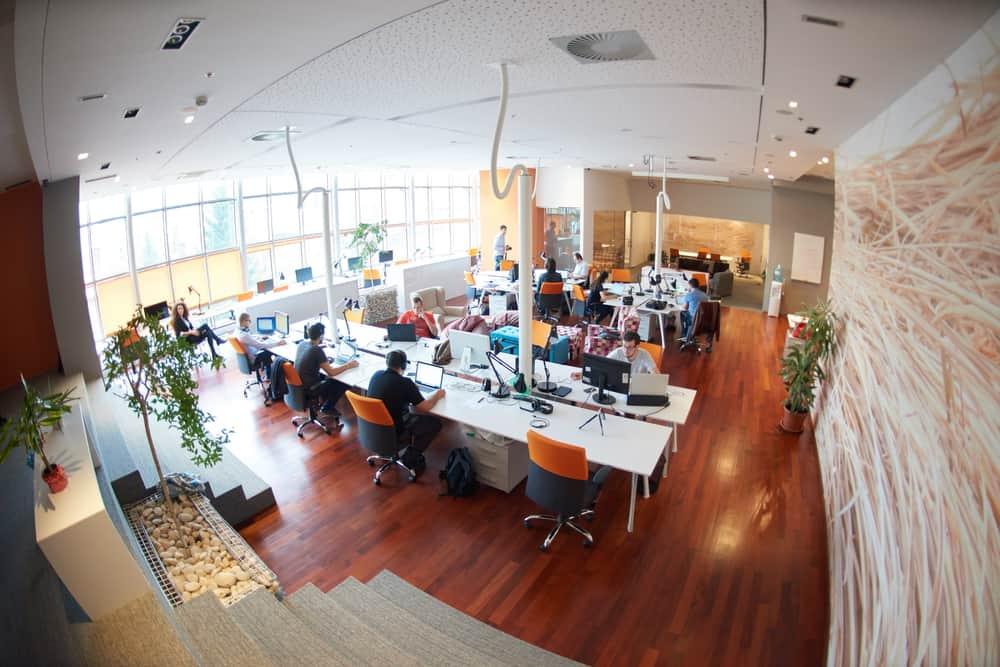3Feb2017
As the t-shirt says, the cloud is just somebody else’s computer. As more and more businesses replace their infrastructure with cloud hosting services, issues such as trust, privacy, security, and above all, performance are becoming increasingly important factors when choosing an online home for your business.
In an industry dominated by titans like Amazon, you’d imagine the ability to capitalise on vast economies of scale would be a decisive factor in delivering a high-quality, profitable service. How can any newcomers hope to carve out a foothold in such a competitive market?
Antti Vilpponen, CEO of UpCloud – Finland’s third fastest growing tech company – believes his company is doing just that. UpCloud is currently on a definite upward trend. Having recently acquired four million euros in total funding, the company is planning to launch four new international data centres and a second availability zone in Helsinki this year. Three new offices are also in the pipeline for Chicago, London, and Singapore, scheduled to open by the end of the summer.
Fuelling this growth are strategic choices that have enabled UpCloud to maintain its service level and position itself as an attractive alternative to the industry’s usual suspects.
Nordic Business Report: You made your name as Co-Founder of ArcticStartup. What convinced you to work for a technology company operating in such a tightly-fought market?
Antti Vilpponen: In 2013, I had been working at ArcticStartup for five years. The role taught me a lot about the tech industry – not just in Finland, but also in the Nordics and Baltics. The opportunity to follow different companies also fed my passion to work in tech once again, especially for a product or service company. I met Joel (Pihlajamaa, UpCloud Founder – above right) two years before I joined the company, and I knew what the guys were working on.
In my opinion, your team is the irreplaceable part of any business, especially in the deep technology field. You can replace speed with money and visa-versa, but you can’t substitute in-house talent with any other resource. The tech side of UpCloud’s team has extensive cloud hosting experience dating back to the early 2000s. Coupled with a great product, this meant it was a relatively easy decision to jump on board.
NBR: What were some of the early challenges you faced?
AV: Our early issues were mostly financially related – building a profitable business in a very capital-intensive market. Our margins are good, and it’s a good business to be in, but it requires a lot of hardware and a lot of fixed costs on a monthly basis. Making the business cash flow positive and convincing customers to come on board in the early days required a lot of focus and strategic thinking, which we are happy to have within the team. UpCloud is not a one-man show – we have a lot of experience in many different parts of the company. Being able to combine this expertise in a useful way is what we aim to do.
NBR: What were some of your early successes?
AV: Our customers tend to be early adopters of new technologies, so being able to convince them to try out a new service is a great position to be in. For example, we managed to close a lot of our best customers within the first six months of my time at UpCloud – customers like Cabforce, ruutu.fi and several digital agencies that we still have on board. It was a combination of good timing and a lot of good sales work.
NBR: What is the main factor driving UpCloud’s growth?
AV: The speed factor is something we very deliberately began targeting and researching, as storage speed and performance is still a bottleneck in many ways. Being able to operate at a world-class level in that space has been a key differentiator for us. A US-based research company ranked us first out of 19 European cloud service providers in terms of performance – Amazon and Azure didn’t make the top 10.
Also, being from Europe in general and the Nordics in particular is never a disadvantage in business, from both a geographical and a cultural perspective. Looking at the way the world is going at the moment – there’s a lot of benefit in being a European company given the data privacy issues. Having a data centre with cloud computing capacity that you can operate yourself in Finland is a significant benefit.
NBR: Does being a smaller player give you an agility advantage?
AV: Absolutely. One of the key benefits of us having a small technological footprint in terms of size is that we can update physical technology and software a lot faster than Amazon can. They also need to build their technology in modules, which also means that they have a lot of different performance-tiered products. With UpCloud, you always have the same fast, reliable experience – you don’t need to choose a service level.
Another advantage is that tech companies have historically used technological differentiation to lock customers into their product ecosystems. We see the opposite taking place in many ways. New technologies are abstracting the infrastructure layer, and this is something we see playing to our advantage. We aren’t creating technology lockups in the form of features – rather in the shape of service quality and performance.
NBR: What’s in the pipeline in the near future?
AV: We have a couple of exciting opportunities, but it’s up to the market to validate their viability. There are a couple of interesting megatrends we’re looking to assign value to for our customers – if we can do so, those will be very exciting. In general, we want to keep opening new offices and data centres. Our ultimate aim is to understand the global market on a local level.
From a user base perspective, we’re currently most interested in SMEs that build online businesses relatively exclusively. First of all, they have a good understanding of the cloud service provider space, so they’re familiar with the challenges and are looking to optimise all the time. UpCloud is the right company to meet their ongoing requirements.
By boxing smart, UpCloud has proved that agile businesses who assemble world-class in-house talent and differentiate through service quality can compete with industry heavyweights. Through intelligent targeting and constant testing, UpCloud is in good shape to consolidate its position in the years to come.
@johnathancozzi


